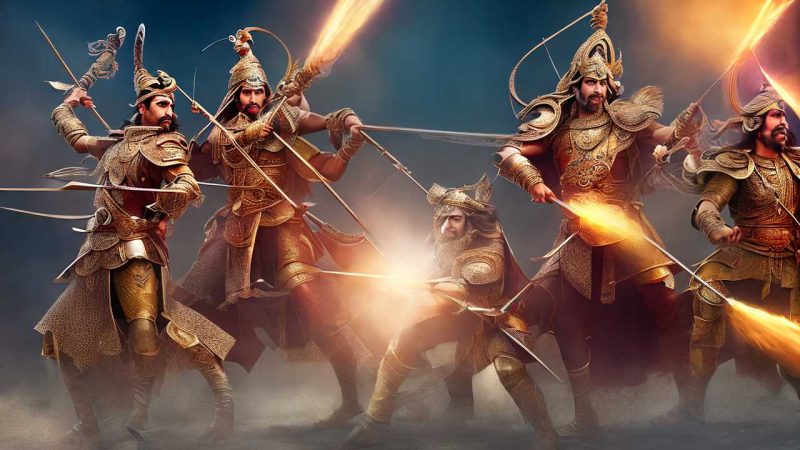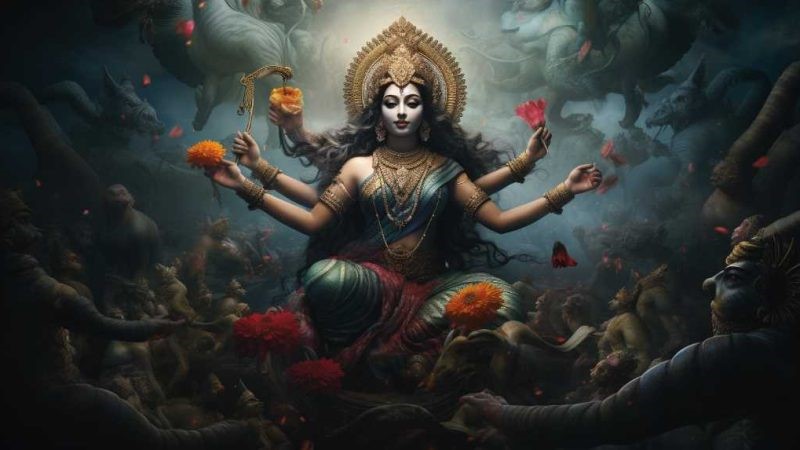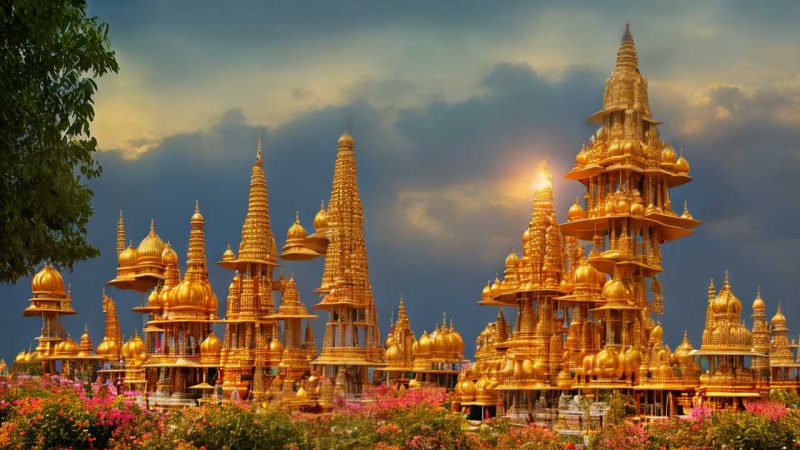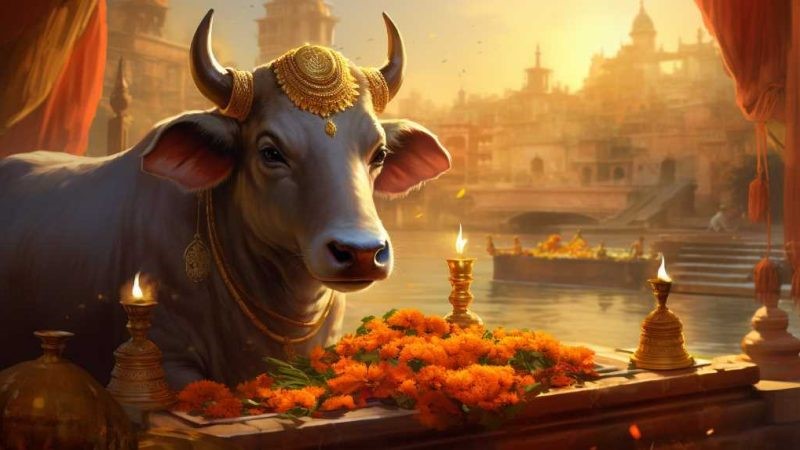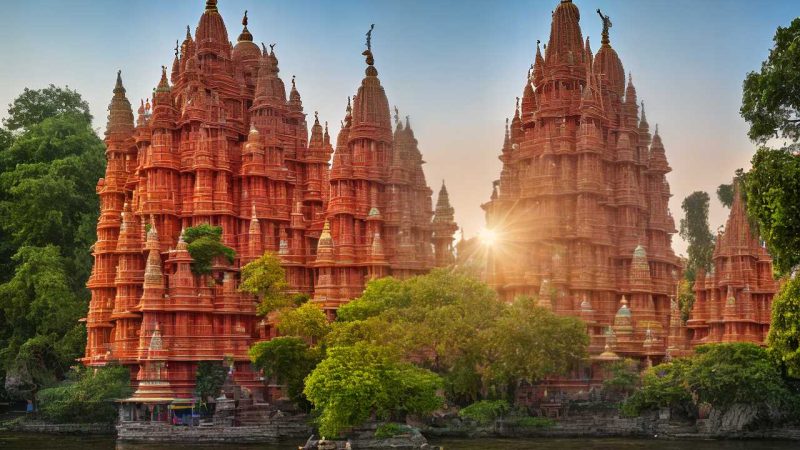Community and Culture Hindu Temples in Pennsylvania

In Pennsylvania’s green landscapes, Hindu temples are more than just places to worship. These buildings play a big part in the state’s community by bringing ancient traditions into American life. They are busy places where people practice spirituality, celebrate cultural events, and work on projects that benefit everyone.
These temples help maintain cultural heritage while also fitting into American society. This is important because it shows how temples help shape the multicultural story of the U.S. and offers a glimpse into how these community spaces might evolve.
For example, during Diwali, a temple might hold a public event with fireworks and a feast, inviting non-Hindu neighbors to join and learn about the festival, showing how these temples are a bridge between cultures.
The Architectural Splendor
Pennsylvania’s Hindu temples are known for their stunning design, which shows the community’s deep roots and skilled craftsmanship. These buildings mix traditional Indian styles with modern touches to meet the needs of the local Hindu population. When you look closely at these temples, you notice the carefully picked materials, detailed carvings, and thoughtful layout that make religious ceremonies and social events possible.
More than just a place for prayer, these temples act as cultural centers, helping to keep the Hindu community’s cultural identity alive. They are built with intention, aiming to express Hindu beliefs in a form that leaves visitors in awe.
For example, the Sri Venkateswara Temple in Pittsburgh is not just a replica of the famous Tirupati temple in India; it’s also designed to withstand the cold Pennsylvania winters. This shows how the temple combines Indian tradition with practical adjustments for the local climate. By doing so, it provides a warm and welcoming place for worship and community events, even in the snow.
This kind of thoughtful design helps make the temple a key spot for maintaining and celebrating Hindu culture far from India.
Spiritual Practices Upheld
Hindu temples in Pennsylvania are more than just impressive buildings; they’re important centers for keeping Hindu spiritual practices alive. At these temples, people come together to do things like Puja every day, which is a series of worship steps that includes giving offerings, saying prayers, and meditating. These actions are thought to help people feel closer to the gods. The temples also host events and ceremonies that match the Hindu lunar calendar, helping to keep the culture strong among the people who go there. By doing these things, the temples help maintain a sense of spiritual discipline and cultural identity within the Hindu community in Pennsylvania, especially for those who are far from their original home.
These temples listen to the different needs of their visitors and make sure there’s something for everyone. For example, during the festival of Diwali, which is like the Hindu New Year, temples are decorated with lights and people come to pray, eat special foods, and watch fireworks. It’s a way for the Hindu community to come together, celebrate, and keep their traditions going, even when they’re far away from where those traditions started.
In a friendly and easy-to-understand way, it’s clear that these temples are not just places of worship. They are the heartbeat of the Hindu community in Pennsylvania, keeping their faith and culture alive in their new home.
Festivals and Celebrations
Hindu temples in Pennsylvania are important centers where people come together to celebrate and keep their cultural and religious traditions from India alive. At these temples, people can worship and also join in on many different festivals that have special rituals and meanings.
For example, Diwali, or the Festival of Lights, is a time when people celebrate good winning over evil. Holi, also known as the Festival of Colors, is a joyous event that welcomes the spring season. These holidays are not just for Hindus; they welcome everyone, which helps different people understand each other’s cultures and creates a sense of togetherness.
The temples are essential in making sure these traditions stay relevant and continue to be a part of the lives of Indians living far from their original home.
Community Engagement Initiatives
Pennsylvania’s Hindu temples are working hard to involve everyone in their community. They set up many programs that welcome people from all walks of life to join in on helping others, learning new things, and talking with people from different religions.
The reason these programs are so important is that they help the Hindu community connect with their neighbors, building trust and friendship among different groups. Temples become more than just a place to pray—they turn into lively spots where people can get together to make their neighborhoods better and smarter.
When we look at what these temples are doing, we see that they really help people work together and support each other, which makes the community stronger.
For example, a temple might host a food drive that brings everyone together to collect food for those in need. Or they could run a workshop where people can learn something new, like how to manage their finances or how to cook healthy meals. These actions are important because they show that temples are about more than religion; they’re about helping people in practical ways too.
Preserving Heritage and Identity
Hindu temples in Pennsylvania are important for keeping Indian culture alive among people who have moved from India. These places aren’t just for praying; they’re also where people gather to keep their language, art, and traditions going. The temples host regular religious events, celebrations, and classes that help Indian Americans, especially kids, stay connected to where their families are from. By getting involved in these cultural activities, everyone helps keep their shared customs alive.
This is really important for people who want to remember their Indian heritage while they’re becoming part of the wider American community. It helps them be proud of where they come from and also fit in with different cultures.
For example, during Diwali, a popular Indian festival of lights, the temple might organize a special event with lights, music, and food that reminds people of the celebrations back in India. It’s a way for families to teach their children about the holiday’s traditions and meanings. This kind of activity helps everyone feel connected to their roots and to each other, building a strong sense of community.
Conclusion
Hindu temples in Pennsylvania are important places. They look amazing and are important for religious worship and cultural events. These temples help keep Hindu traditions alive, and they’re important for bringing people together. They’re not just places to pray; they also help Hindus in Pennsylvania remember their culture and who they are. By organizing events and activities, these temples play a big part in making the community in Pennsylvania diverse and connected.
For example, during Diwali, a well-known Hindu festival, these temples might organize a big celebration with lights and food, which gives everyone a chance to learn about and enjoy Hindu customs. This kind of event helps make sure that the Hindu way of life is kept alive far from where it started. By doing things like this, Hindu temples in Pennsylvania show how important they are to the local community.

